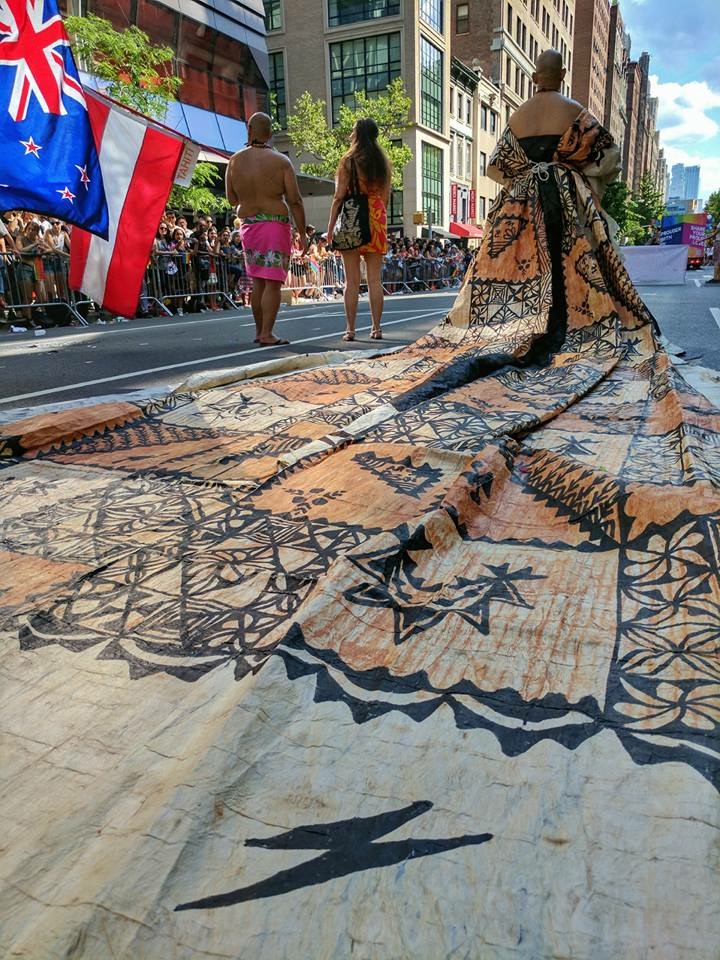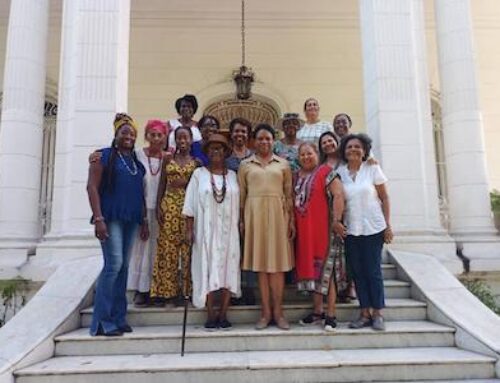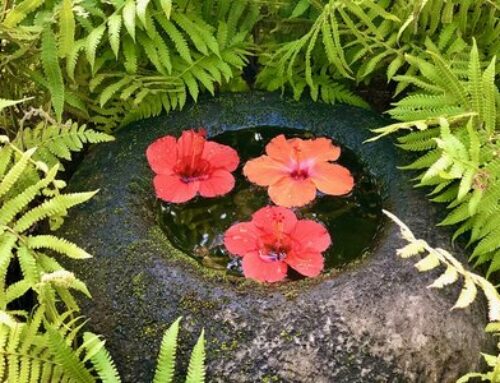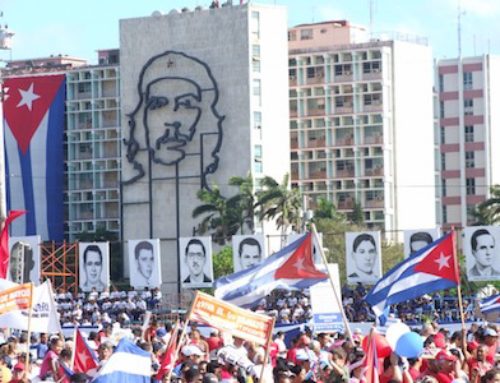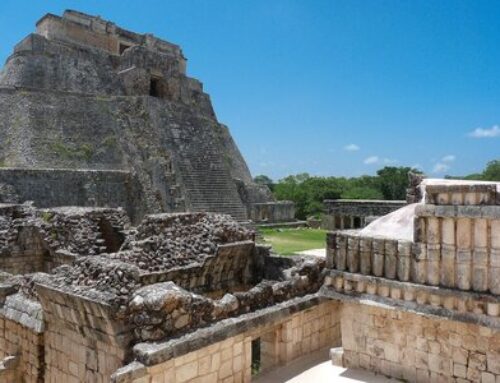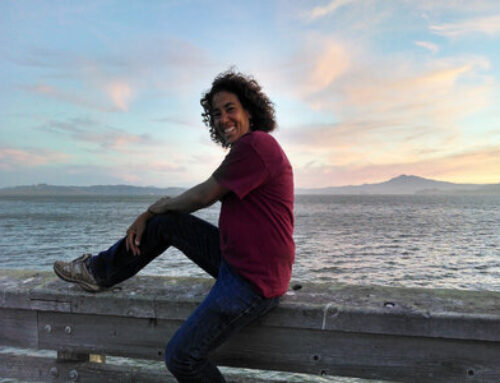Entrepreneur Jesus Puerto is the owner of New Haven, CT’s Soul de Cuba Cafe and the director of the Cubanakoa Foundation. He’ll be leading May’s AltruVistas journey to the International Day Against Homophobia in Cuba, where participants will meet LGBTQ activists and artists and celebrate La Jornada, or “Cuban Pride.” Learn more about Jesus’ life work in international relations and cultural exchange, and about the history of the Cuban LGBTQ movement, in this interview.
Hi, Jesus! Let’s start off with some history—what can you tell us about your own Cuban ancestry?
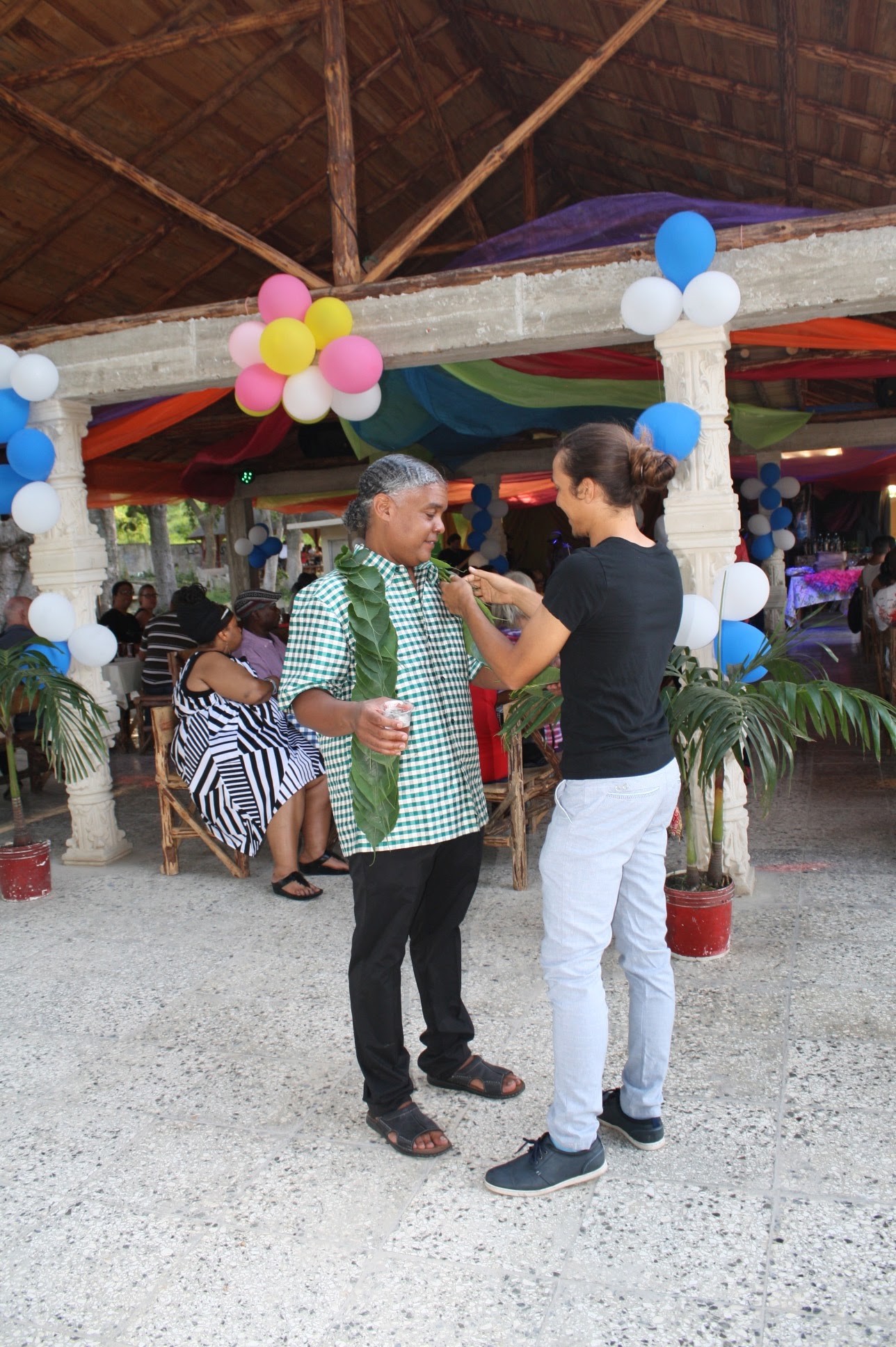 My hometown is Tampa, Florida. There’s a historic district in Tampa, Ybor City, and my ancestors—my great-grandparents—migrated there from Guanabacoa, just outside of Havana, in the late 1800s. The economic heart of the Ybor City community was the cigar industry. Many Cubans in Tampa were tabaqueros, or “cigar rollers,” during the time of José Martí. Martí was a Cuban intellectual and poet who was a leader in the Independence movement to end Spain’s rule and for Cuba to become a sovereign nation. After Martí was exiled to the US, he was invited to Ybor City to speak and he organized with the community there.
My hometown is Tampa, Florida. There’s a historic district in Tampa, Ybor City, and my ancestors—my great-grandparents—migrated there from Guanabacoa, just outside of Havana, in the late 1800s. The economic heart of the Ybor City community was the cigar industry. Many Cubans in Tampa were tabaqueros, or “cigar rollers,” during the time of José Martí. Martí was a Cuban intellectual and poet who was a leader in the Independence movement to end Spain’s rule and for Cuba to become a sovereign nation. After Martí was exiled to the US, he was invited to Ybor City to speak and he organized with the community there.
In 1900 (Independence was 1898) an organization was formed which is still around today: La Union La Sociedad de Martí y Maceo (after Antonio Maceo, another prominent Independence leader). My cousin is the current president. It began as a mutual aid society and a place for black and mestizo Cubans to socialize and coordinate, and to preserve the culture and hold the memory of Martí and Maceo in Tampa. The Society is a breakaway from a larger and more diverse society of Cubans living in Tampa that had to organize separate from white Cubans because of Jim Crow laws enacted in the southern US at that time.
My own family has maintained our connection with our relatives in Cuba. We still have a community base there in Guanabacoa.
Tell us about your work in the world; all its twists and turns and interweavings.
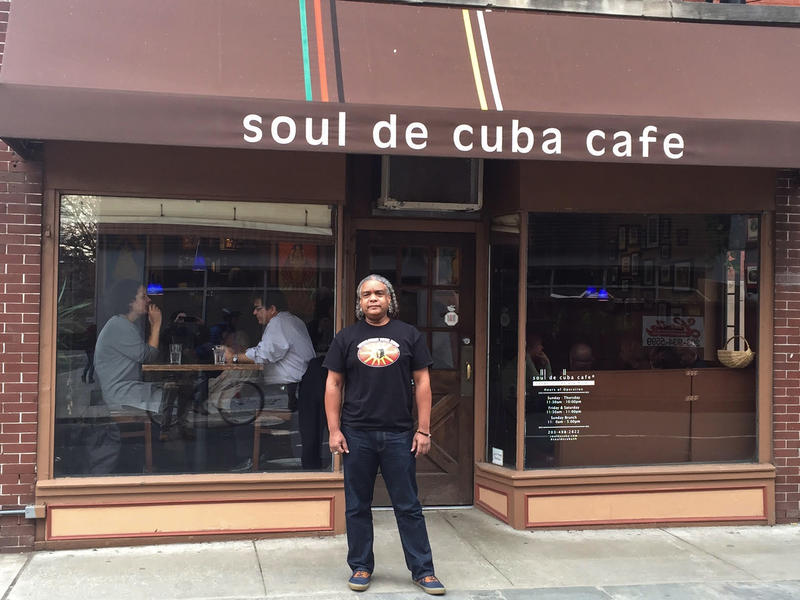 I have a background in international relations work since the late ’90s. I was in the Peace Corps in Samoa, where I went through intensive training in Samoan language and culture, and started up a sustainable housing/Habitat for Humanity program. I stayed on beyond my Peace Corps work and it turned into a UN assignment.
I have a background in international relations work since the late ’90s. I was in the Peace Corps in Samoa, where I went through intensive training in Samoan language and culture, and started up a sustainable housing/Habitat for Humanity program. I stayed on beyond my Peace Corps work and it turned into a UN assignment.
After that, I worked in DC at the Peace Corps headquarters as the Desk Officer for the Caribbean region. From there, I was recruited by Paul Newman’s Association of Hole in the Wall Camps to come to New Haven, CT, to work on developing programs both domestically and internationally to serve children with life-threatening illnesses.
Yet since the late’80s/early ’90s, I’d had a vision of owning and operating a restaurant with purpose.
On Easter weekend in 1993 in Tampa, I had a near-death experience with spinal meningitis and a 106-degree fever. I was told I had hours to live, and when I survived, doctors described it as a miracle. The experience shifted me into an awareness to fulfill a sense of purpose in this life, and to also find what happiness meant for me. So that’s what took me to the Peace Corps, Newman, and the international social work I was doing. After years of experience in that world, I wasn’t completely satisfied. I had walked away from the restaurant vision but it had returned. I thought, “Maybe I can realize my vision of creating a restaurant to tell the story of my family’s history, and make enough money to support some of the communities I work with. Then I feel like I’ll be really happy.”
One day as I was walking just outside of Yale University’s campus, I noticed that a small Indian restaurant had put up a “For Sale” sign. I thought, “I’m not sure where this journey is taking me, but if it’s meant to be….”
I acted on that feeling and in January of 2005, Soul de Cuba Cafe was a reality, and the Cubanakoa Foundation was in its development stages.
Yes, the Cubanakoa Foundation! What does Cubanakoa do, and what initiatives are you currently working on?
The Cubanakoa Foundation is looking at the relationship to sustainability between Polynesian and Cuban societies. We look at five “S’s”: sustainability, self-sufficiency, sacred activities, spiritual activities, and sexuality—and how these all interlink. In indigenous societies, what was conservation’s relationship to the sacred? And why are we removed from that today—from these ancient, pre-colonial wisdoms that allowed people to manage to not exploit these islands for thousands of years? What can we learn from our ancestors to realize their wisdom as it relates to the modern human experience?
I’m fascinated by cultural exchange and by cross-cultural similarities. Linguistically, there’s indisputable evidence of Polynesian presence in Cuba, and in the Caribbean from coastal western South American through Central America. We’re bringing awareness to cultural connections between Hawaii and Cuba. We are on the path of creating sister-city-type relationships through People-to-People International between Honolulu and Havana, and Guanabacoa & Waianae. We’ve done three or four exchanges since May 2012, with support from the Honolulu city council and the Office of Cooperation and Friendship in Havana. We build bridges with like organizations, and also are planning to work with the Director of Indigenous Study and the Director of the Matsunaga Peace Institute at the University of Hawaii. And interestingly, my connection to AltruVistas is through Laurien Nuss, who is a Cubanakoa Foundation board member and AltruVistas’ Hawaii Program Director.
(Editor’s note: We’ll be talking with Jesus again this year to dive more deeply into the indigenous studies wing of his Foundation work. You can also view his other upcoming June 2018 AltruVistas journey, “In Canoe from the Amazon to the Caribbean,” which is centered more on these topics, at https://altruvistas.com/cuba-amazon-to-the-caribbean-cubanakoa-2018/)
What can you tell us about the LGBTQ rights movement in Cuba—and what might we be surprised to learn?
Cuba has a very storied history in this regard. A key organization is CENESEX—The Centro Nacional de Educación Sexual (www.cenesex.org). It’s led by Mariela Castro Espín, who is the daughter of Cuban president Raúl Castro and the niece of Fidel Castro. CENESEX is a government-funded organization devoted to LGBTQ rights and the eradication of homophobia and transphobia. Mariela is a heterosexual woman, but used her position of power and her education to champion human rights as her main political platform. She sits on the board of the International Day Against Homophobia. CENESEX spearheaded legislation that passed in 2008 for Cuban citizens who are gender-transitioning to have free, governmentally-funded surgeries—although the waiting list is very long. Counseling and family services also exist for transitioning individuals.
Another wing of CENESEX’s work is HIV/AIDS education and prevention. Cuba has made great strides in this regard. In the ’80s, HIV+ Cubans were quarantined in treatment centers. Now Cuba has the lowest HIV rate in the Americas and one of the lowest rates worldwide.
Same-sex marriage is still not yet legal in Cuba, but same-sex activities have been decriminalized. There are many public awareness campaigns on Cuban TV. And of course there is La Jornada every May, Cuba’s celebration of the International Day Against Homophobia, which will be the centerpiece of our journey. This will be the 11th year of “Cuban Pride,” which rotates location among various Cuban cities every year, with a huge street parade celebration. But we’ll do more than just celebrate—we’ll be meeting with activists, artists, and doctors; hearing diverse gay voices.
What else will participants experience on your May tour, and what should they know about you as a journey leader?
In addition to La Jornada, we’ll be visiting CENESEX offices at various branches. Another goal is to create awareness of cross-cultural or inter-cultural exchange within the LGBTQ community. It is my hope that leaders from the Hawaiian LGBTQ community will be joining us.
I’m openly gay, or non-conforming. I came out in the late ’90s just before moving to Samoa. In indigenous communities, many shamans have historically been LGBTQ. These individuals were revered in their communities—recognized as having special qualities. How were these ideas lost or removed from us during colonization? Christian missionaries banned these ideas, but could not eradicate them nor their legacy.
When I returned to the US and was living in DC, I definitely noticed the lack of venues for Native Americans, Latinos, and blacks within the gay community. What I love about the community in Cuba is that there are spaces for gays that are absolutely about the human. The Cuban LGBTQ movement is part of a larger human rights movement. The vision is that regardless of your preference, there is nondiscrimination and openness. Every human has the freedom and liberty to be themselves and go where they want to go, and treat others and be treated as one.
Finally, I don’t ask to be looked at like I’m the leader of the journey. I’ll be facilitating or hosting the multicultural exchange aspect, and curating the itinerary, but together, we will see and learn and share in Cuba in regard to Cuban human rights. I act as a participant and will be learning too from our local guides. I know a lot about Cuba but I’m still learning, and this will be my first La Jornada too! I always make myself available to share the knowledge and perspective I have as I learn alongside. Finally, I’ve lived in the Pacific Islands for over 20 years now. My worldview is a little outside the norm of a typical American, but I’m also very proud to be an American. As they say in Cuba, “It’s complicado!”
Cuba
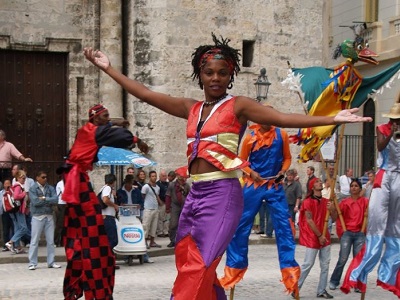
May 12-20
$2370-$2900
Sponsoring Organization: Cubanakoa
Availability: CLOSED
Cuba
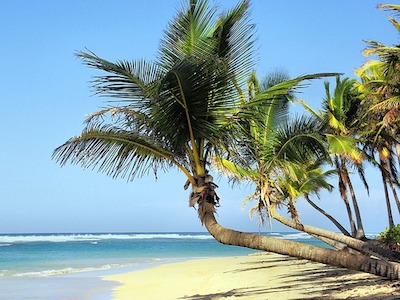
June 22 – July 1
4 star hotel $3910 single supplement is $890
Casa particular $2900 single supplement is $300
Sponsoring Organization: Cubanakoa
Availability: CLOSED



